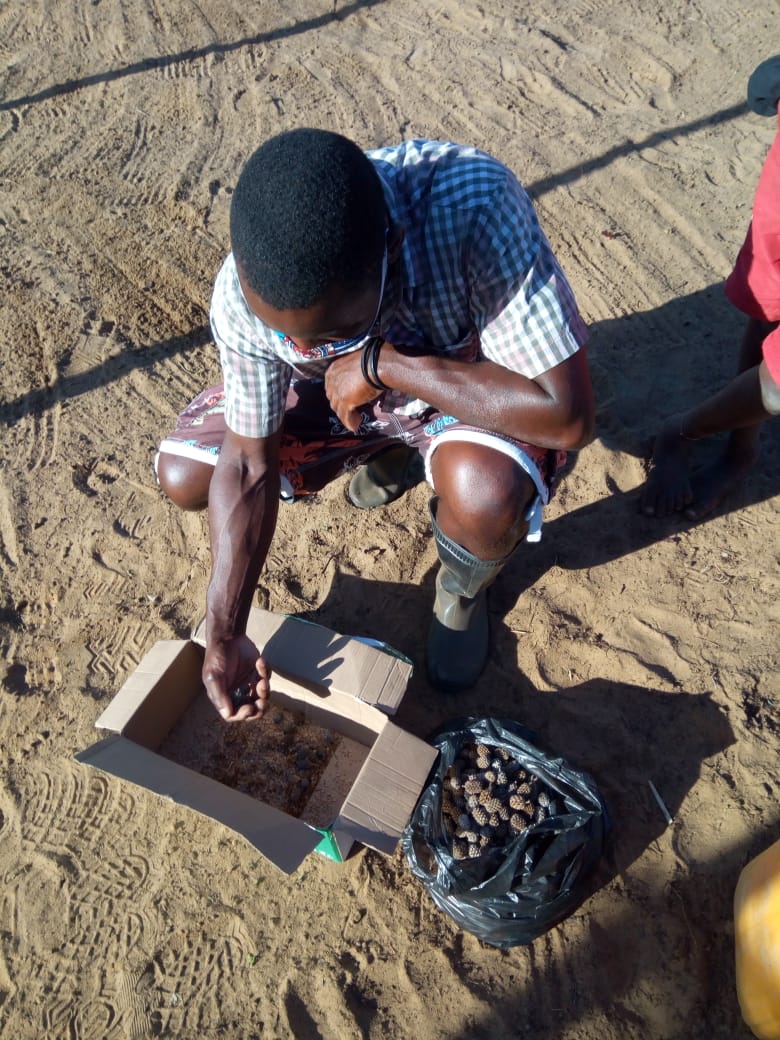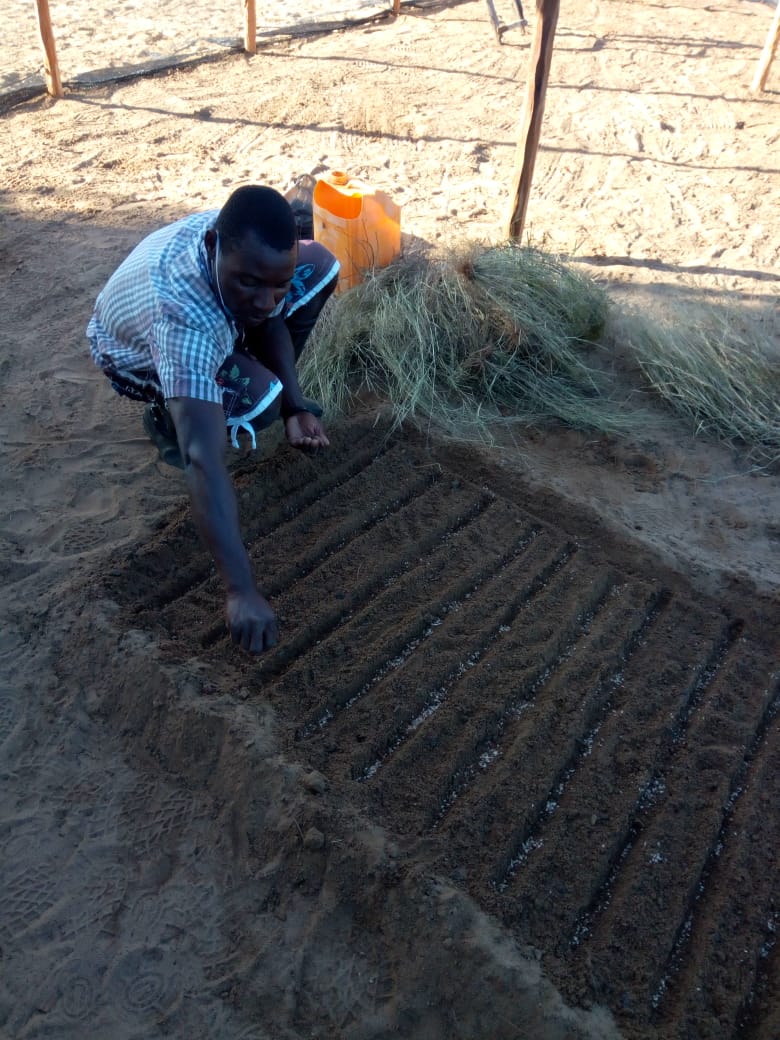Climate-resilience project helps farmers thrive in Mozambique
In early 2020 the Coastal Resilience to Climate Change (CRCC) project supported two communities from Mozambique’s Inhassoro district to develop conservation agriculture projects, trained them on good farming practices and provided them with agricultural inputs. A recent visit by His Excellency Henriques Bongece, Mozambique Vice Minister for Sea, Inland Water and Fisheries revealed that the communities are practicing sustainable agriculture as an alternative source of livelihood, generating extra income and improving their livelihoods and ecosystems health.
By Carla Manjate Rombe
Communities living in Mozambique face different climate risks such as drought, cyclones and erosion that threaten their livelihoods and ways of life. To help build resilience of these communities and empower them to respond to climate change in an inclusive, resilient and more sustainable way, IUCN in partnership with Mozambique Ministry of Sea, Inland water and fisheries and RARE are implementing the Coastal Resilience to Climate Change (CRCC) project, funded by the Swedish Embassy in Maputo.
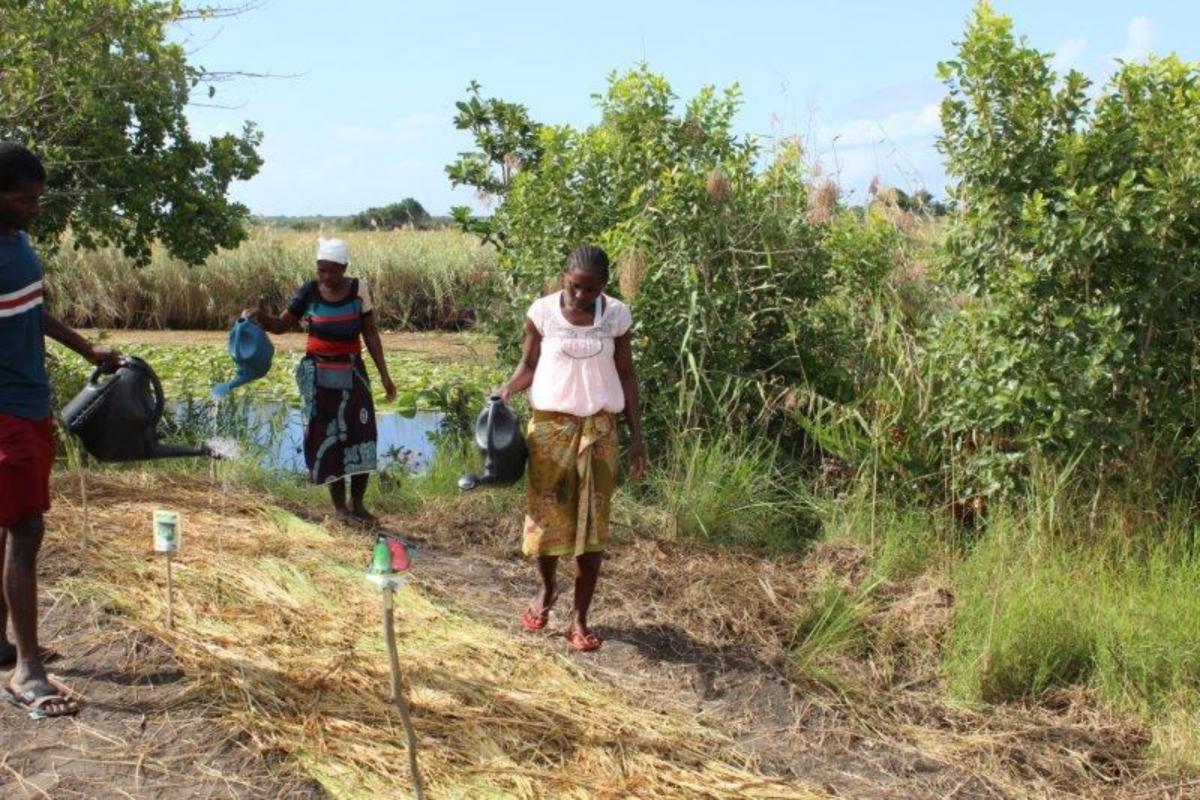 Mozambique farmers practise conservation agriculture
Photo: IUCN ESARO
Mozambique farmers practise conservation agriculture
Photo: IUCN ESARO
At the beginning of 2020 CRCC supported two communities from Inhassoro District in the development of conservation agriculture projects. Taking a gender-responsive approach to climate-smart agriculture, specific needs and priorities were addressed in the design and implementation of these community projects; 23 community members (83% women) were trained on sustainable farming practices such as mulching, maintaining soil structure, promoting soil productivity and producing biological pesticides using plants. They also received agricultural inputs as part of the project.
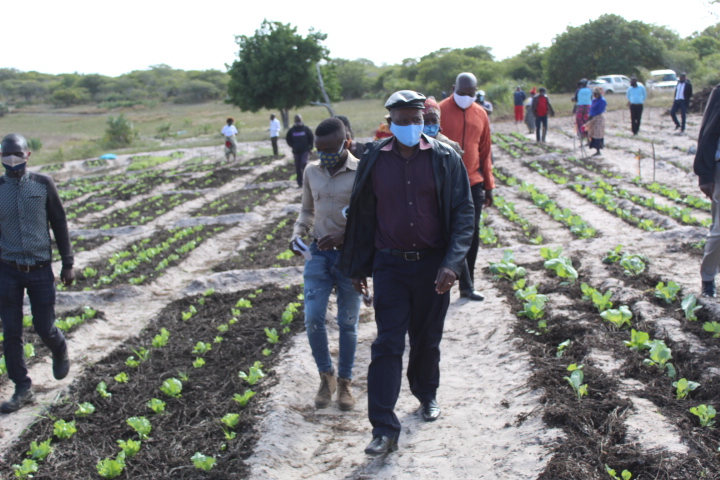 Excellency Henriques Bongece, Mozambique Vice Minister for Sea, Inland Water and Fisheries
Photo: IUCN ESARO
Excellency Henriques Bongece, Mozambique Vice Minister for Sea, Inland Water and Fisheries
Photo: IUCN ESARO
In June 2020, His Excellency Henriques Bongece, Mozambique Vice Minister for Sea, Inland Water and Fisheries visited the communities and found that they are already experiencing positive results: The cultivation of vegetables is allowing farmers, particularly women to increase their agricultural productivity, provide more food for their families, generate extra income and improving ecosystems health. This translates into an increase in women’s access to agricultural inputs and income.
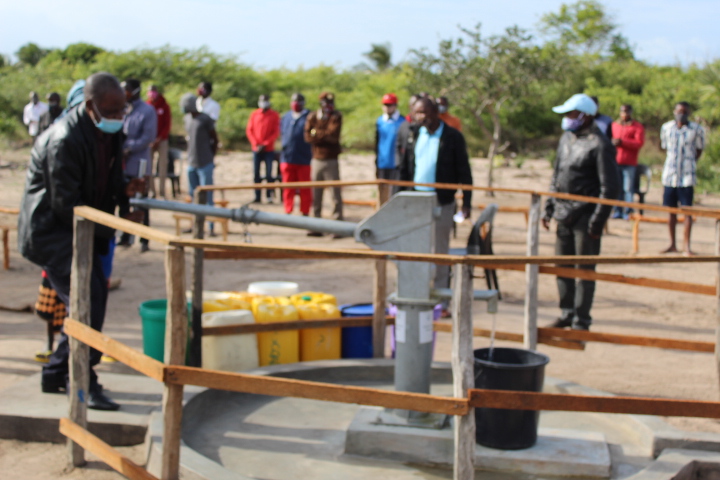 His Excellency Henriques Bongece, Mozambique Vice Minister for Sea, Inland Water and Fisheries visiting CRCC projects
Photo: IUCN ESARO
His Excellency Henriques Bongece, Mozambique Vice Minister for Sea, Inland Water and Fisheries visiting CRCC projects
Photo: IUCN ESARO
“We are grateful for the CRCC project, because our community depended only on fishing for survival, but with the support to develop conservation agriculture we now have another source of income!” Says Auneta Catingue – Group Leader (Mangarelane natural resources management group)
The project works directly with District Level Advisory Groups (DLAGs) established to ensure effective collaborative decision-making, monitoring and learning between communities, districts and provincial governments. The advisory groups are comprised of 8 to 10 individuals, including representatives of coastal community groups (where women are equally represented). Allowing women active participation in community decision-making forums.
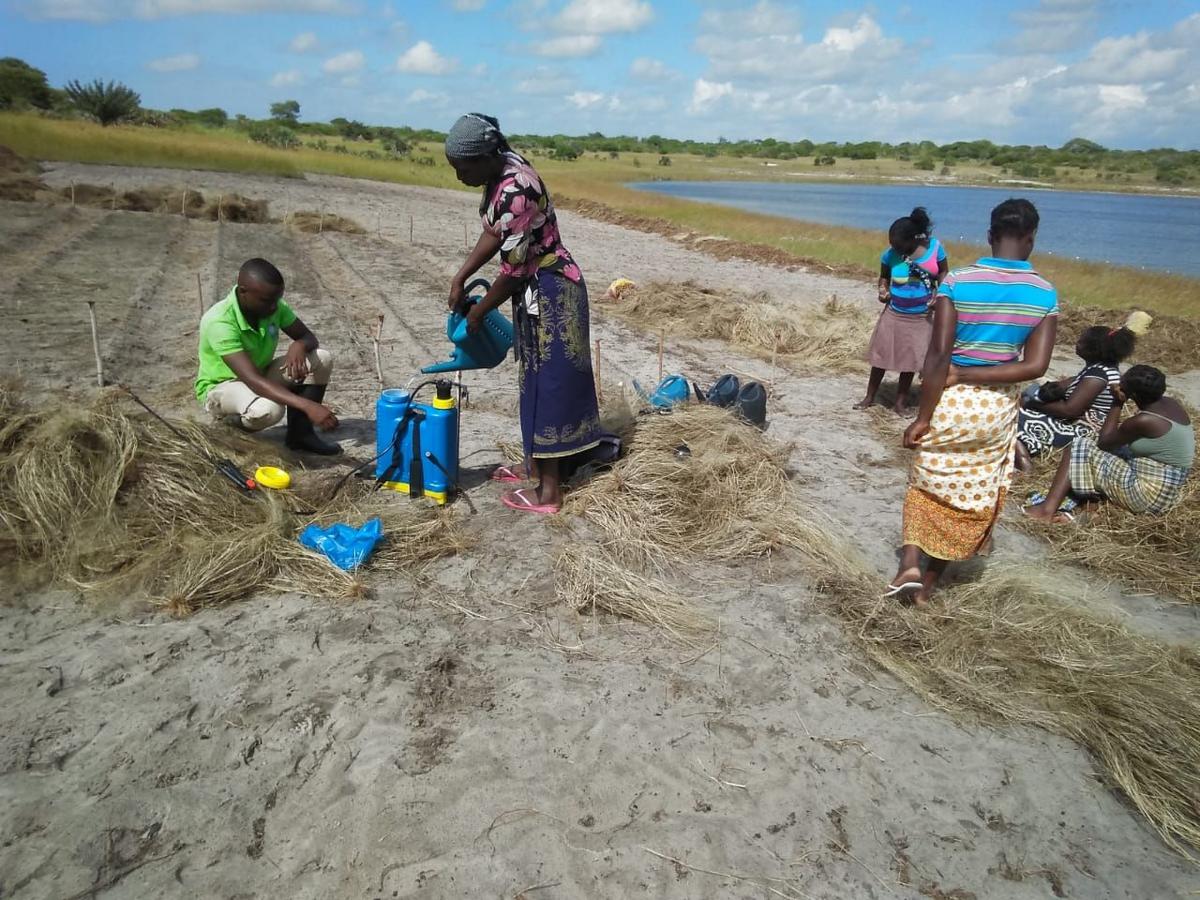 Farmers in Mozambique practise conservation agriculture under the CRCC project
Photo: IUCN ESARO
Farmers in Mozambique practise conservation agriculture under the CRCC project
Photo: IUCN ESARO
Contributing towards the Sustainable Development Goals (SDGs)
SDG 1, No Poverty: So far the Project has trained 23 families, in Inhassoro District, in sustainable income-generating strategies like vegetable production for family consumption and income generation.
SDG 2, Zero Hunger: With projects in the initial phase, so far each community group is working in a quarter of an acre area, benefiting 650 women 450 men. It is projected that the area will be increased to half an acre per community group. However, the local market will dictate whether it is worth increasing the area of cultivation.
SDG 5, Gender Equality: So far the Project has trained 23 community members (83% women) on farming practices to increase agriculture resilience. Equipped the small-scale farmers (19 female and 4 male) with agricultural inputs and promoted the conservation agriculture techniques, contributing to increased food security and income and in due course promoting women economic empowerment.
